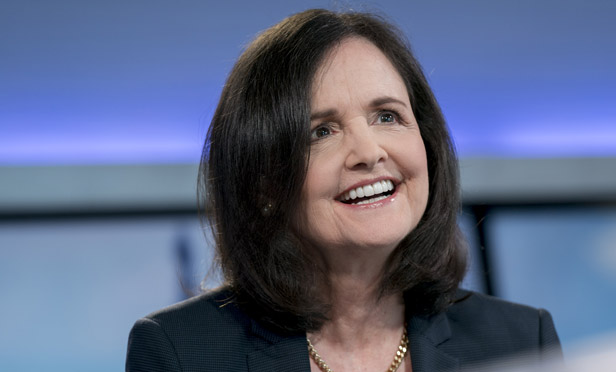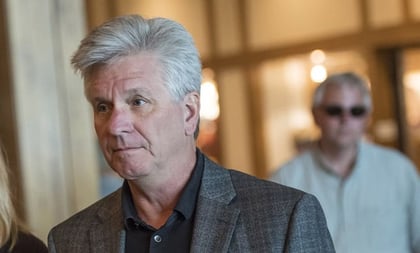After a yearlong assault on the Federal Reserve and its chairman, President Donald Trump has tapped two wildly different economists to the central bank’s board who seemingly have one important thing in common.
They’re both likely to support the president’s call for lower interest rates.
One, Christopher Waller, is largely a conventional choice. Drawn from within the Fed’s own ranks, he’s been consistent in his calls for a more dovish approach over the years. The other, Judy Shelton, has spent decades outside mainstream economics and recently appears to have completed a metamorphosis from proponent of returning to the gold standard — a concept broadly espoused by those who feel monetary policy is too lax — to an advocate of the need for more stimulus.
“It seems like both are going to be in favor of lower rates, and sooner rather than later,” said Kathleen Bostjancic, an economist at Oxford Economics in New York. “They are much more dovish, and obviously that’s what President Trump wants.”
Waller is director of research for St. Louis Federal Reserve Bank President James Bullard, who was the only dissenting vote in favor of a rate cut at the Fed’s meeting in June. Shelton, who has been an informal adviser to Trump, has publicly said the central bank should reduce rates.
 Judy Shelton. (Photo: Bloomberg)
Judy Shelton. (Photo: Bloomberg)
Trump, who announced his picks within minutes of each other on Twitter Tuesday, has recently struggled to find candidates for the Fed that are acceptable to senators who must confirm nominees. The president previously advanced four people for the two remaining open seats on the board of governors. None of them made it, raising questions about the White House vetting process for his picks.
“It was a great pleasure to meet with the president this afternoon,” Shelton said in an email on Tuesday night. “This president really gets it. His pro-growth economic agenda should not be undermined by wrongheaded ‘Phillips Curve’ thinking that punishes productive economic growth and subverts continued gains while turning a blind eye to the currency impact of ‘additional stimulus measures’ by other central banks. We have high employment and low inflation; so much for the supposed trade-off.”
The Phillips Curve holds that there’s an inverse relationship between unemployment and inflation.
Senate Confirmation
The lengthy Senate confirmation process means neither candidate is likely to join the board for months, perhaps not even until next year. Current Vice Chairman Richard Clarida’s nomination was announced April 18, 2018, and he wasn’t sworn in until Sept. 17. Governor Michelle Bowman, nominated the same day as Clarida, didn’t take office until Nov. 26.
As a high-ranking Fed staffer, Waller may have a better chance of passing muster with lawmakers than some of Trump’s previous contenders. As for Shelton, the Senate has already confirmed her in her current role as the U.S. executive director for the European Bank for Reconstruction and Development.
Her unorthodox views, though, could attract opposition.
In an interview with Bloomberg in May, she said she was “highly skeptical” that the goals for the Fed set by Congress — the pursuit of maximum employment, stable prices and moderate long-term interest rates — were relevant.
The White House has conducted the search for Fed candidates as Trump has repeatedly blasted Fed Chairman Jerome Powell over the Fed’s interest rate increases. The president has told confidants that he believes he has the authority to replace Powell as Fed chairman, demoting him to the level of board governor, according to people familiar with the matter. But Trump said he doesn’t plan to do it. The president chose Powell as Chair, replacing Janet Yellen last year.
Trump’s eagerness to get rid of Powell makes both of these nominees potential chairs-in-waiting, a factor that may also affect their confirmation process in the Senate. Powell has said he intends to serve his full four-year term and that “the law is clear” on that issue.








 July 03, 2019 at 12:07 PM
July 03, 2019 at 12:07 PM












 Copyright © 2024 ALM Global, LLC. All Rights Reserved.
Copyright © 2024 ALM Global, LLC. All Rights Reserved.